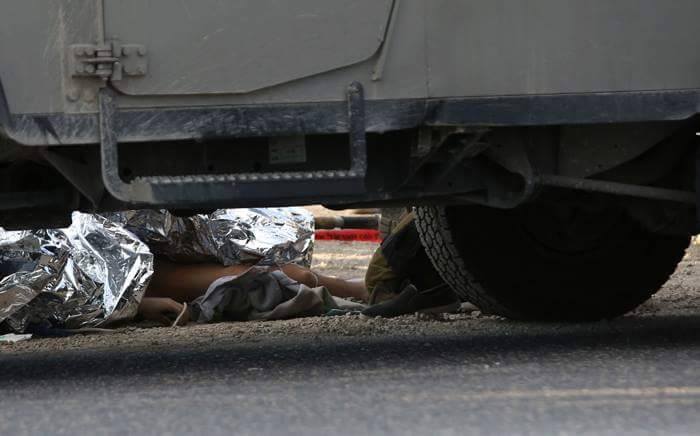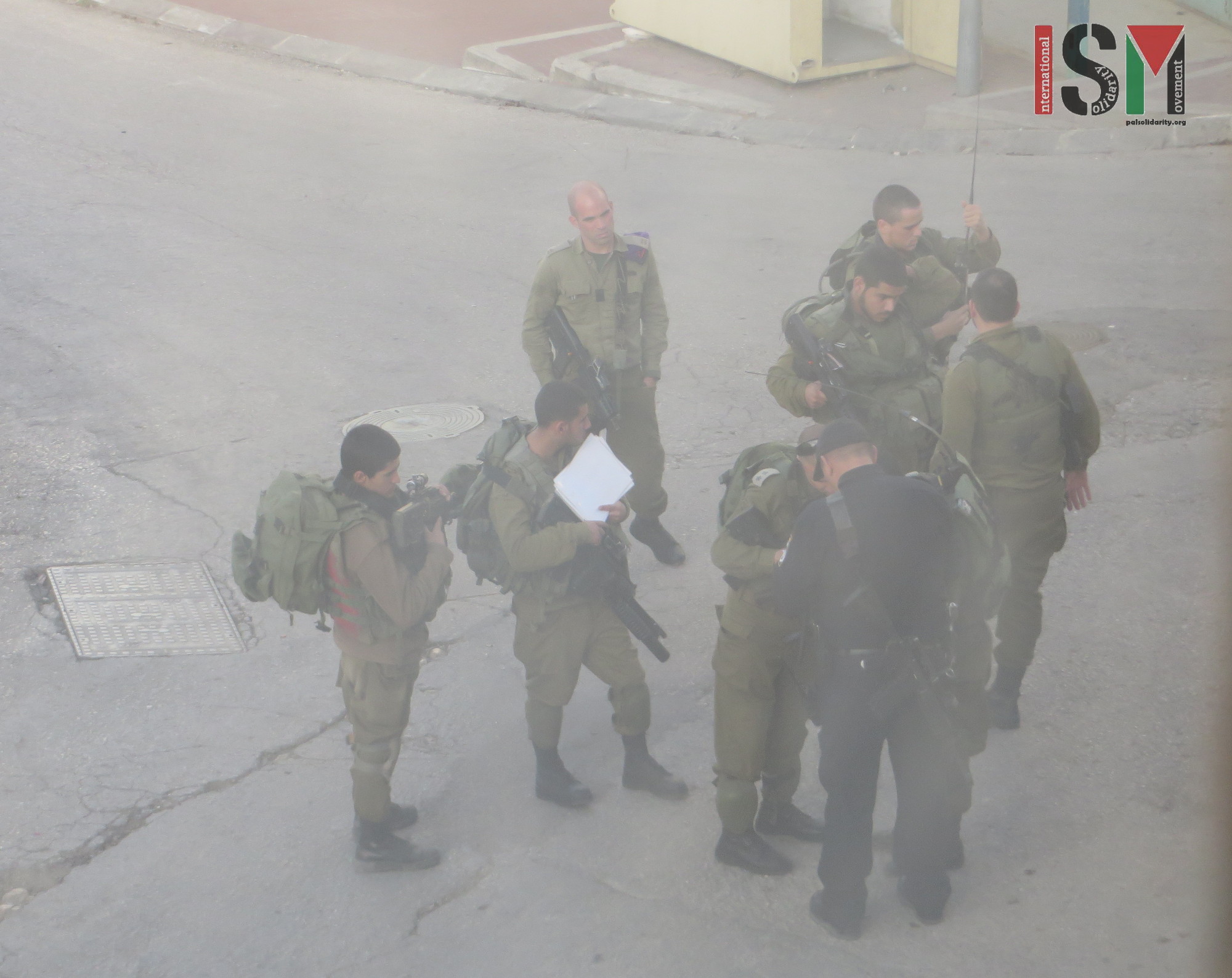Category: Features
-
Palestinian teenager killed and woman critically injured after being shot in the head at Huwwara checkpoint
Yesterday, November 23rd, Israeli forces shot dead a Palestinian teenager at the Huwwara checkpoint south of Nablus. Samah Abd al-Mumen Ahmad, a Palestinian woman who was shot in the head in the crossfire as she drove past the scene, is currently in the hospital in critical condition. The incident occurred only 24 hours after the last killing at…
-
Arbitrary use of closed military zone orders in Hebron
22nd November 2015 | International Solidarity Movement, al-Khalil team | Hebron, occupied Palestine After being allowed back to their legally owned apartment in Tel Rumeida in occupied al-Khalil (Hebron) on Thursday, international human rights defenders were kicked out from their home for the third time by Israeli forces the following day. The draconian restrictions of…
-
Night raids continue in al-Khalil (Hebron)
22nd November 2015 | International Solidarity Movement, al-Khalil team | Hebron, occupied Palestine On Tuesday, 17th November, several groups of soldiers raided houses in the Wadi al-Hurriya neighborhood of al-Khalil (Hebron), an H1 district legally outside of Israeli control. From 7.30pm, Israeli forces were present in the area, divided into groups of 7-12 soldiers and…



